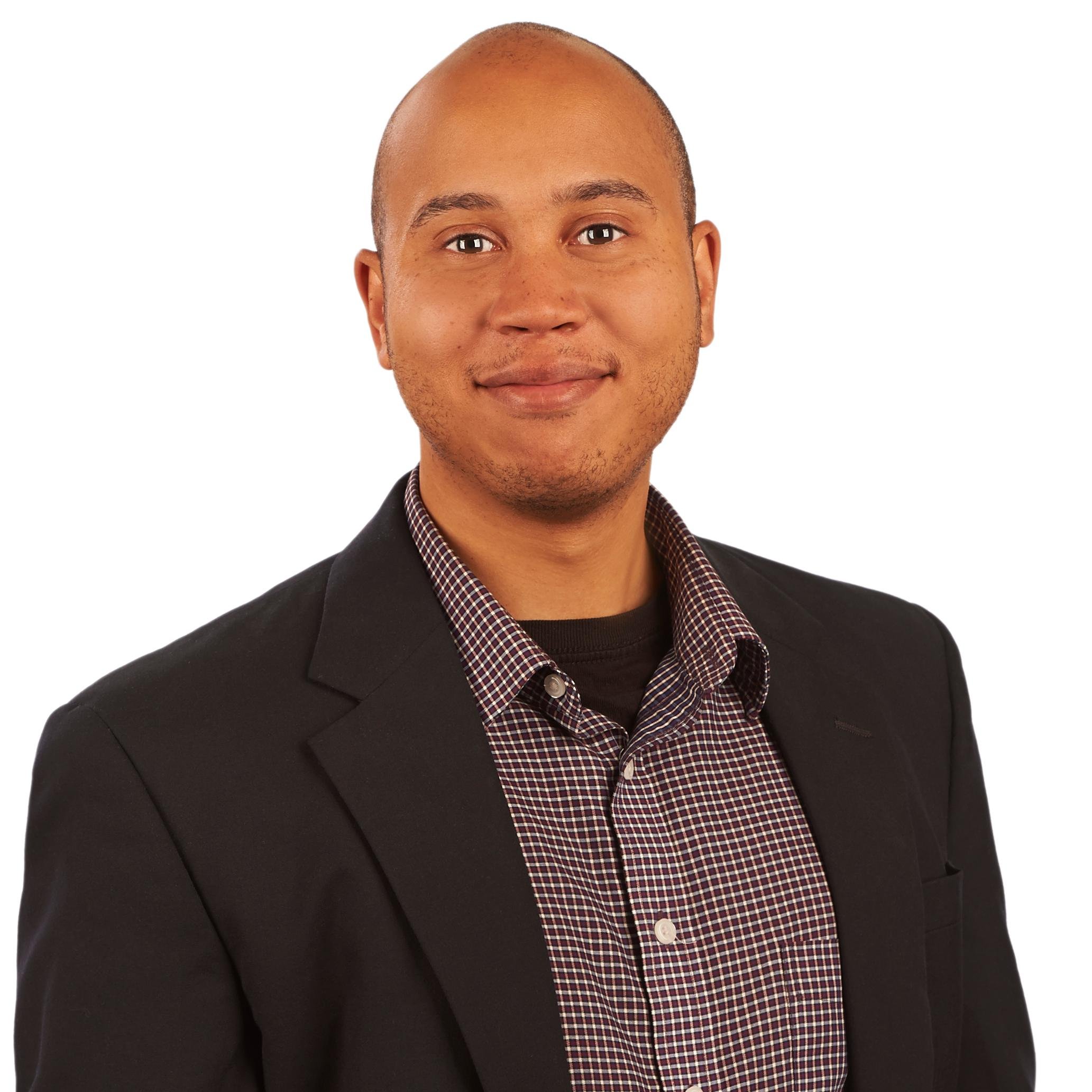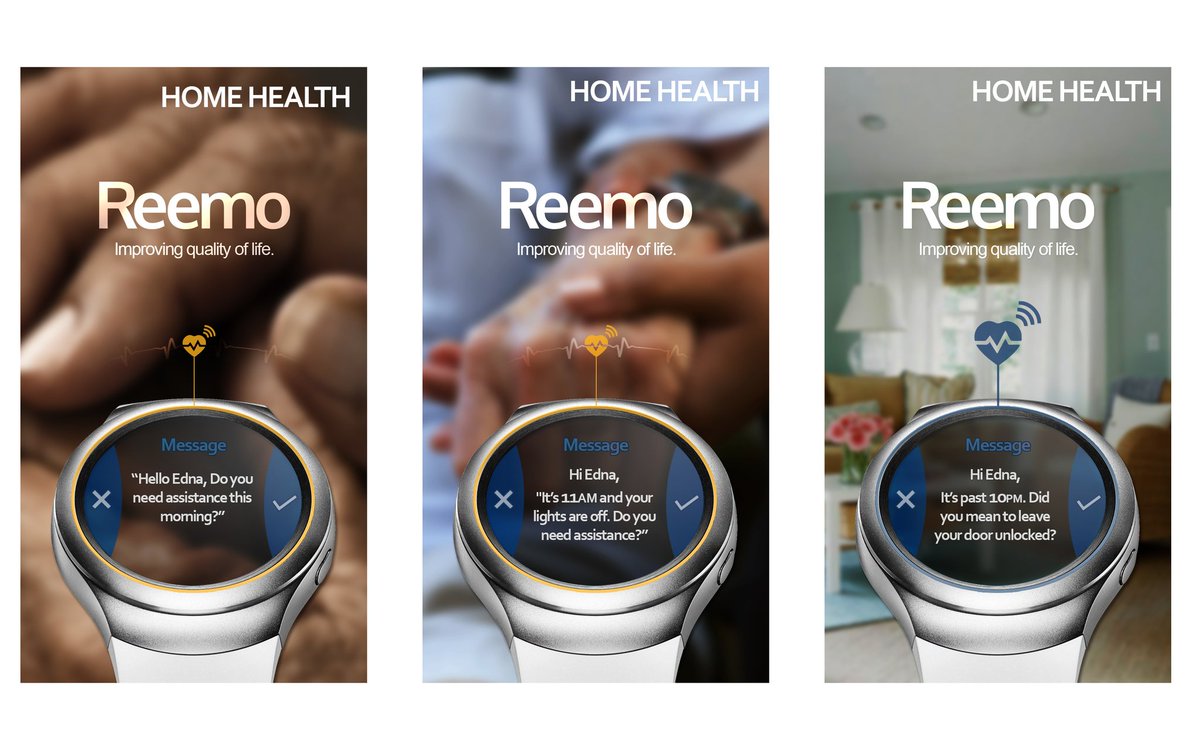Muhammad Abdurrahman, PhD, of Reemo
Muhammad Abdurrahman is a tech
entrepreneur and co-founder of Reemo. After graduating from
Morehouse College, he pursued his doctorate in linguistics at the University of
Minnesota, where he founded Playtabase, a company that eventually became Reemo.
While at the University, he also cofounded and led the Youth Music Education Foundation and participated in the STARTUP class at the Carlson School of
Management, where he worked on building Playtabase. Since his participation in
the course, Reemo has undergone residency at Microsoft and is now a Samsung
Enterprise partner.
Muhammad’s company Reemo is a remote
monitoring and remote control wearable software solution built from day one to
enable seniors to age gracefully and build peace of mind and awareness for
loved ones and care providers. Reemo
tracks seniors through their day, sends critical notifications, and with Reemo,
seniors can control their home appliances simply by waving their hands at the
device even from across the room.
1. What initially compelled you to
pursue the idea of Playtabase (now Reemo)?
At the end of 2011, six months before
I started working on Playtabase, my father had several strokes and heart
attacks. As a result, he had difficulty living at home alone because he
was prone to falls and couldn’t easily adjust appliances, windows, etc. in his
home. On top of that, there was always the chance that he’d have another
attack or fall into a coma alone; there was no way to rest safely about his
well being in that situation.
I was already interested in how
speech recognition systems might help control a smart room, but given my studies
for the master’s degree and now PhD in Linguistics, I was familiar with the
ultimate limitations of those systems especially for stroke victims. So, I
developed an idea to complement those systems to fix their shortcomings and
also give me notifications if my dad had a life-threatening event such as a
fall or coma.
2. What were some of the most pivotal
moments that caused the idea to evolve into its current form?
I see three pivotal moments.
The first was in the first two months of ideation back in 2012 when it was just
me and an undergraduate engineering student arguing whether I was crazy.
I did an analysis of where the consumer electronics industry would likely find
greatest success in wearable technology if it ever took off; this was well before
the major companies got into the smartwatch game, so it was a real
question. After asking around and considering a number of factors, I
ruled out placing Reemo on fingers (despite Lord of the Rings appeal), and the
forearm. Designing for the wrist would give us the best opportunity for
observability, comfort, a move to software rather than making hardware,
acceptance with seniors, and ultimately acquisition.
The second big moment was when
Playtabase was invited to stay at Microsoft for several months. There, we
got a lot of great design input, including the advice to add a screen to the
band. Before that, we resisted having a screen for numerous reasons. This
eased our transition to the third moment.
The third big moment was when the
consumer electronics industry finally started introducing smartwatches in the
market regularly. This gave us our long awaited chance to move away from
hardware, so that we could focus on software, analytics, monitoring, etc.
Today, Reemo no longer makes hardware. Reemo is a Samsung Enterprise Partner, and Reemo software runs on their smart watch.
3. How has the university environment
and the STARTUP class in particular affected the path of this idea?
The University of Minnesota’s
environment at the time was a great place for me to build up Playtabase.
I knew I wanted to be a tech entrepreneur two years before I started and talked
my way into clubs in CSE and Carlson, the engineering and business colleges, to
gain experience and information, even though I was a CLA student. I
applied for internships through those programs, and competed in their
competitions. I was motivated enough, that I was able to overcome
objections, and it was uncommon enough that there were no rules against
it. So by the time I started Playtabase, I was already running a 2 year
old non-profit with friends I met in those clubs and had experience in business
and technology.
My engagement in clubs from various
colleges, gave me a tremendous opportunity to connect students and organize
them around a common purpose, a skill I learned in the U's Entrepreneurship Club. Although there were many places in
the University where I was laughed at and ridiculed as a weirdo with an improbable
idea. The wealth of clubs and opportunities
made for multiple chances to access an amazing experimentation, recruitment,
and training ground for the skills necessary to boost Playtabase up. Additionally, support from involved and
caring faculty in those colleges like Paul Imbertson in CSE and Steve Spruth +
John Stavig in Carlson, was tremendously helpful in opening doors and
introductions for me, as CLA graduate student with a crazy idea. This all lead to an all student or recent
grad team of about 12 pretty quickly as we gained steam with students from
across the university helping out, running out of dorm rooms and school
areas. It was a lot of fun, and we all
learned a lot.
Although it was still in development
at the time, the Startup Class was one of those wonderful resources available
to students including me, because I had sought to drench myself in awareness of
the programs at the U. In it I was forced to develop the Playtabase’s
first public presentations, work on business modeling, and had the luxury of
being held to account for progress on a regular basis and gain feedback on
company efforts. Being your own boss for a sane idea is tough. When
you’re trying to turn grandma’s into Jedi, a lot of wild ideas float
around, so that enforced discipline was critical early on. Plus it gave
me a break from my teaching and dissertation writing, though my advisors likely
wouldn’t have liked that.
4. What advice do you have for
current and future STARTUP participants and student entrepreneurs?
This is just my input:
For Startup Class participants, I say
your business is not a class. The class is a short-term adviser you paid
for. It’s not about the grade; it’s about improvement. If you can’t
measure that, it didn’t happen.
Student Entrepreneurs:
- Train your gut, then listen to it. Having your sanity questioned isn’t always bad; it may be necessary.
- Succession planning is planning success. Get a mentor; be a mentor. Stay focused, humble, and weird.
- Verify your biases whenever possible. Seek out opportunities. Enjoy the journey. Prefer optimists.
- Attend the U’s Entrepreneurship Club and related opportunities with the intensity of a professional athlete.

